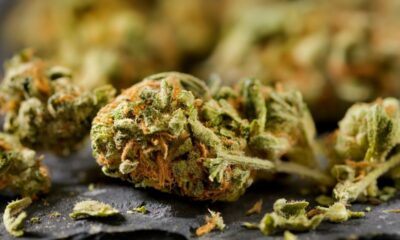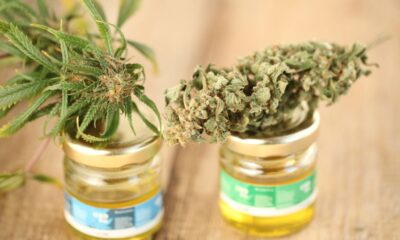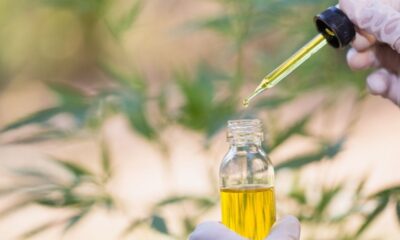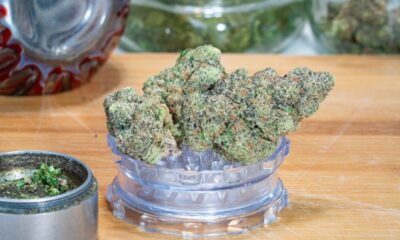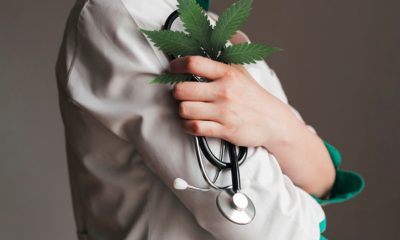Benefits of Medical Marijuana
How Cannabis Affects the Human’s Brain
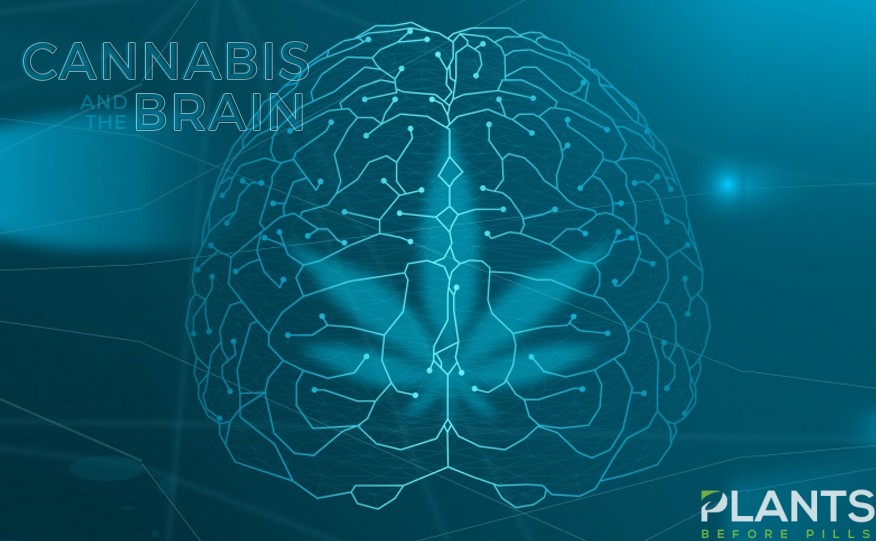
Despite the political and social controversy surrounding cannabis, its medical benefits remain to be part of the public consciousness. From its pain-relieving features to its stress-reducing effect, this green plant has managed to leave a hopeful light in the medical community.
For years, many doctors and scientists have already attested to the incomparable promises the drug suggests, especially to the body’s command center. With this, various studies and researches are continuously being conducted to further expand on marijuana’s effect on the human brain.
Want to know what these several important discoveries are?
Here, we have compiled all the necessary findings modern science have discovered, and what further possibilities relating to cannabis and the brain may lie directly ahead.
Read on.
Cannabis and the Brain: How Does It Work?
Over the years, many substantial details about the relationship between cannabis and the brain have already been discovered. From identifying the active ingredient of the plant to determining how it specifically interacts with the brain, scientists have managed to arrive at different discoveries that have stunned the world.
After several decades of research, a new system called the endocannabinoid system has been unveiled to the public. From there, the question surrounding the enigmatic plant and the body’s command center has become an easier topic to grasp.
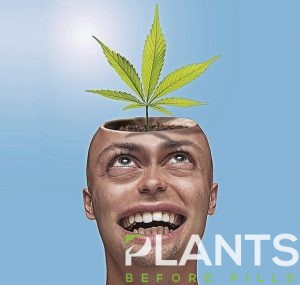
As explained by the National Institute on Drug Abuse, when a person smokes marijuana, the Tetrahydrocannabinol (THC), or the principal psychoactive constituent of cannabis, will pass through the lungs, go into the bloodstream, and reach the brain. Due to THC’s similar chemical structure with the brain chemical anandamide, the body recognizes the chemical and allows THC to attach and activate the chemical messengers of the endocannabinoid system called cannabinoid receptors.
Depending on the quantity consumed and the method of consumption, THC is likely to overwhelm the whole EC system. This, in turn, could interfere with the ability of the cannabinoid receptors to limit the amount of dopamine in the brain. This, in turn, throws the entire system off balance and stimulates the brain’s reward system, or a group of neural structures responsible for the body’s pleasure system. As a result, the brain generates higher dopamine levels, contributing to the feelings of euphoria or “high” associated with cannabis consumption.
From there, various mental and physical functions will be disrupted, and different effects are likely to occur in the body.
Here are a few you should know:
Health Benefits of Cannabis:
Over the decades, many medical breakthroughs have stemmed from a broad range of cannabis-related studies. Here, we present a few of the most promising medical solutions marijuana suggests to patients.
-
Mental health benefits
Although there is much more to learn about the effects of the plant to one’s mental health, various medical studies already prove marijuana’s potential in treating mental health disorders, especially depression, social anxiety, and PTSD.
In a study conducted by scientists at the University at Buffalo’s Research Institute on Addictions (RIA), the researchers have discovered how chronic stress may suppress the brain’s production of endocannabinoids or the natural chemical compounds responsible for maintaining homeostasis, which includes physical and emotional health. This, in turn, could lead to depression or post-traumatic stress disorder.
“Chronic stress is one of the major causes of depression,” explained RIA senior research scientist Samir Haj-Dahmane, Ph.D. “Using compounds derived from cannabis — marijuana — to restore normal endocannabinoid function could potentially help stabilize moods and ease depression.”
Moreover, in other preliminary studies, it was discovered that cannabis-based products help regulate emotional functions, such as mood and stress response. This stems from marijuana’s active ingredients, such as THC and CBD, which have been reported to reduce anxiety and tension by inducing relaxation.
However, the said discovery only remains true if cannabis is to be consumed in low dosage.
-
Enhance Cognitive Functions
As opposed to the common notion of how cannabis impairs cognitive functions, various studies revealed that the plant can actually pose a tremendous impact on one’s memory. In fact, in a study led by Harvard Medical School Affiliate McLean Hospital’s Staci Gruber, Ph.D., preliminary evidence suggests that marijuana consumption may not impair but may actually improve executive functioning in adults.
Due to the plant’s anti-inflammatory effects, many substantial pieces of evidence have been collected suggesting the drug’s ability to slow down the brain’s gradual degenerative process brought by aging.
In a review published in the Surgical Neurology International journal, researchers from the University of Pittsburg Medical Center discovered how recent neurological studies have used phytocannabinoids, or the naturally occurring cannabinoids found in the cannabis plant, in treating malignant brain tumors, Parkinson’s disease, Alzheimer’s disease, multiple sclerosis, neuropathic pain, and childhood seizure disorders Lennox-Gastaut and Dravet syndromes.
‘CBD research in animal models and humans has shown numerous therapeutic properties for brain function and protection, both by its effect on the ECS directly and by influencing endogenous cannabinoids,” the researchers explained. “Broadly, CBD has demonstrated anxiolytic, antidepressant, neuroprotective anti-inflammatory, and immunomodulatory benefits. CBD decreases the production of inflammatory cytokines, influences microglial cells to return to a ramified state, preserves cerebral circulation during ischemic events, and reduces vascular changes and neuroinflammation.”
To date, researches concerning cannabis and other neurological disorders continue to dominate the medical realm. In fact, in a recent study, researchers have discovered how cannabis present antipsychotic effects on the brain, which suggest possible treatment for schizophrenia and dementia.
-
Could spur creativity
As opposed to the common stereotypes associated with marijuana users, various studies reveal that the use of cannabis could lead to increased mental creativity.
In fact, in a study conducted in 2012, researchers have suggested that cannabis’ ability to generate psychotomimetic symptoms, which include delusions and/or delirium, could actually lead to an increased level of creativity. According to the researchers, when a person experiences an altered state of mind, he or she is likely to see the world in a different perspective, engage in divergent thinking, and go beyond the limits of normal perception.
Some believe that this sudden spur of creativity could stem from the increased number of dopamine in the brain, which is associated with good cognitive flexibility.
-
Protect the brain after stroke
In a study conducted from the University of Nottingham, researchers have discovered how marijuana suggests possible neuroprotective treatment for stroke – at least for mice.
During the said research, the authors found how cannabinoids could help shrink the area of the brain affected by stroke, posing the drug’s potential to reduce brain damage.
“This meta-analysis of pre-clinical stroke studies provides valuable information on the existing, and importantly, missing data on the use of cannabinoids as a potential treatment for stroke patients,” explained lead author Dr Tim England. “The data are guiding the next steps in experimental stroke treatment in order to be able to progress onto initial safety assessments in a clinical trial.”
Given CBD’s and THC’s anti-inflammatory and anti-oxidant effects, the two compounds continue to attract attention from various medical groups and researchers. However, to date, recent medical studies identify CBD as a better long-term protective solution compared to THC.
-
Control Epileptic seizure
The use of cannabis for treating epilepsy has been studied and debated for years. However, despite the lack of sufficient data, many pieces of research have already established a few substantial pieces of evidence that put marijuana as a possible hope for patients suffering from epileptic seizures.
In fact, in a study conducted in 2003 published the Journal of Pharmacology and Experimental Therapeutics, it was found that marijuana extract and synthetic marijuana have stopped the seizures of epileptic rats for about 10 hours. This has revealed THC’s ability to control seizures by binding the brain cells responsible for controlling excitability and regulating relaxation.
In 2018, Epidolex, a drug derived from CBD, became the first FDA-approved cannabis-derived drug for treating two potentially fatal forms of severe childhood epilepsy, Lennox-Gastaut syndrome, and Dravet syndrome
-
Protect the brain from concussion and trauma
Just like in the case of stroke, some researchers believe that cannabis could help the brain repair itself after a traumatic injury due to its anti-inflammatory and antioxidant properties.
In fact, in a study published in the journal Cerebral Cortex, experiments have been done involving mice to prove marijuana’s ability to minimize the bruising of the brain and helped with healing mechanisms after a traumatic injury.
Earlier this year, Dr. Ethan Russo of the International Cannabis and Cannabinoids Institute presented his recent findings of the relationship of cannabis to head injuries. During his talk, he presented that CBD and THC may help prevent glutamate excitotoxicity or the pathological process by which nerve cells are damaged or killed.
He also presented THC and CBD as possible treatment solutions for chronic traumatic encephalopathy (CTE) symptoms experienced by football players and other athletes.
Conclusion:
For years, cannabis has stood as one of the stars in medical science. Although there is much more to discover about its effect on the body’s central command, these recent discoveries have opened up a space for patients and medical professionals to find the light amid the seemingly impossible quest for treatments.
Which among these medical findings surprised you the most?
Medical Disclaimer:
The information provided in these blog posts is intended for general informational and educational purposes only. It is not a substitute for professional medical advice, diagnosis, or treatment. Always seek the advice of your physician or other qualified healthcare provider with any questions you may have regarding a medical condition. The use of any information provided in these blog posts is solely at your own risk. The authors and the website do not recommend or endorse any specific products, treatments, or procedures mentioned. Reliance on any information in these blog posts is solely at your own discretion.
Benefits of Medical Marijuana
Can CBD Help with Tinnitus?

High-pitched tones and ringing in your ears might already be a normal phenomenon to you, but this condition called tinnitus is actually a type of condition that many other people deal with, especially as they grow older over time.
People have heard that cannabidiol has been great for people dealing with different types of health conditions, from chronic pain, anxiety, insomnia and many others. With its prominence in the field, it comes as no surprise that there are many people who believe that this can help deal with tinnitus as well.
This article will let you in on what CBD products can do to help with tinnitus or if it can even help at all. Read on to find out.
What is Tinnitus?
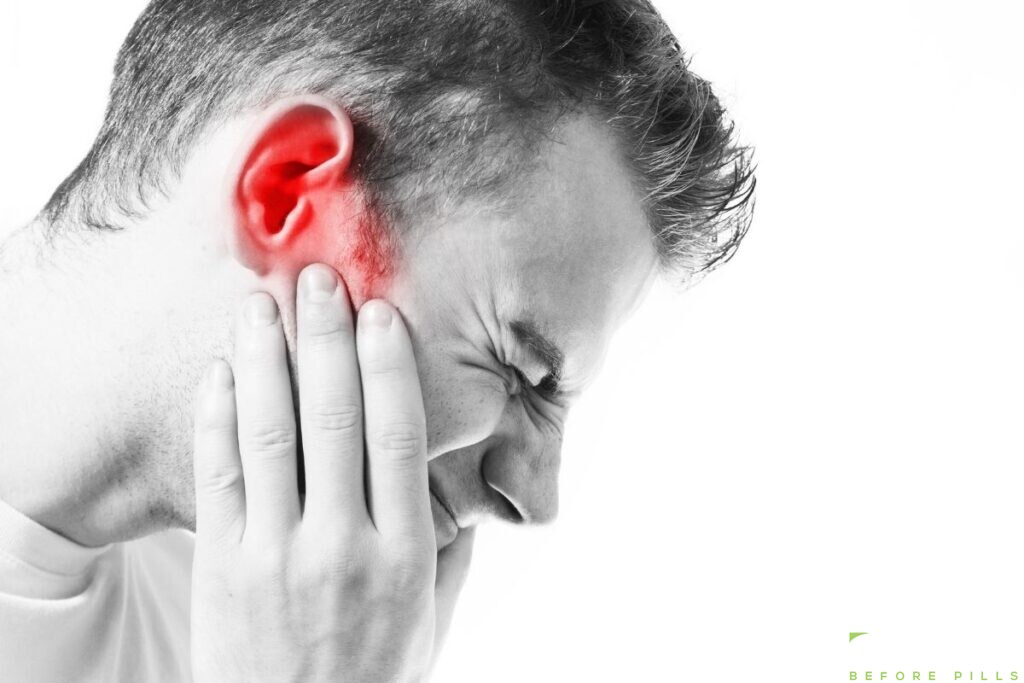
Tinnitus is commonly described as a term when you hear ringing in your ears. Apart from ringing, you can also encounter high-pitched sounds, a buzzing or hissing sound, whistling, and other similar sounds. This particular condition can actually disrupt or interfere with how you normally hear or perceive sounds.
Tinnitus is often referred to as a symptom primarily because it points to other underlying conditions. For example, this can be caused by an ear injury, hearing loss due to age, high or low blood pressure, wax buildup in the ear canal, and problems relating to the neck, jaw, or teeth, to name a few.
Those who suffer from this condition for prolonged periods of time tend to develop stress, anxiety, and even depression.
This condition is treated and managed with the help of hearing aids, sound generators, environmental enrichment devices such as CD and mp3 recordings, and relaxation techniques.
How CBD Can Ease This Condition

Individuals have their own endocannabinoid system (ECS). This is comprised of the naturally-occurring cannabinoids in the body, enzymes, as well as cannabinoid receptors. The main goal of the ECS is to provide balance and regulation to our different bodily functions.
The cannabinoid receptors in our body, namely CB1 and CB2 receptors respond to cannabinoids we take, such as that of CBD.
Help Calm Nerves
CBD oil and other cannabidiol products have the capacity to help calm the nerves and the body. With cannabinoids being found to be of great help in neural processing within the auditory system, using CBD products can slow down these neural impulses. In turn, tinnitus, and the ringing it brings in your ears, can be toned down.
Potential to Reduce Hearing Loss
A study conducted in 2020 shows a positive disposition towards the use of cannabidiol and treating hearing conditions such as tinnitus. Since CBD is known to have anti-inflammatory and soothing effects, this can reportedly aid with the condition and reduce the chances of hearing loss.
Address Side Effects That Come with Tinnitus
As mentioned, people dealing with tinnitus, especially those who have dealt with this condition for a long time now, tend to develop stress, depression, and anxiety. CBD products are effective in reducing these feelings by interacting with the serotonin receptors in the brain.
The Bottom Line
There is still quite a way to go in studying the effects of CBD on tinnitus. However, with the preliminary studies conducted, it shows that cannabidiol is promising with its ability to manage symptoms of this condition.
Medical Disclaimer:
The information provided in these blog posts is intended for general informational and educational purposes only. It is not a substitute for professional medical advice, diagnosis, or treatment. Always seek the advice of your physician or other qualified healthcare provider with any questions you may have regarding a medical condition. The use of any information provided in these blog posts is solely at your own risk. The authors and the website do not recommend or endorse any specific products, treatments, or procedures mentioned. Reliance on any information in these blog posts is solely at your own discretion.
Benefits of Medical Marijuana
Best CBD for Sleep [VIDEO]

In recent years, CBD has become a buzzwordd for its ability to reduce anxiety and treat poor slumber. However, when it comes to addressing sleep problems, not all CBD is created equal. If you’re dealing with insomnia or any kind of bedtime issues, then find out which type of CBD should you use.
Medical Disclaimer:
The information provided in these blog posts is intended for general informational and educational purposes only. It is not a substitute for professional medical advice, diagnosis, or treatment. Always seek the advice of your physician or other qualified healthcare provider with any questions you may have regarding a medical condition. The use of any information provided in these blog posts is solely at your own risk. The authors and the website do not recommend or endorse any specific products, treatments, or procedures mentioned. Reliance on any information in these blog posts is solely at your own discretion.
Benefits of Medical Marijuana
How to Take Epidiolex and What Are Its Side Effects
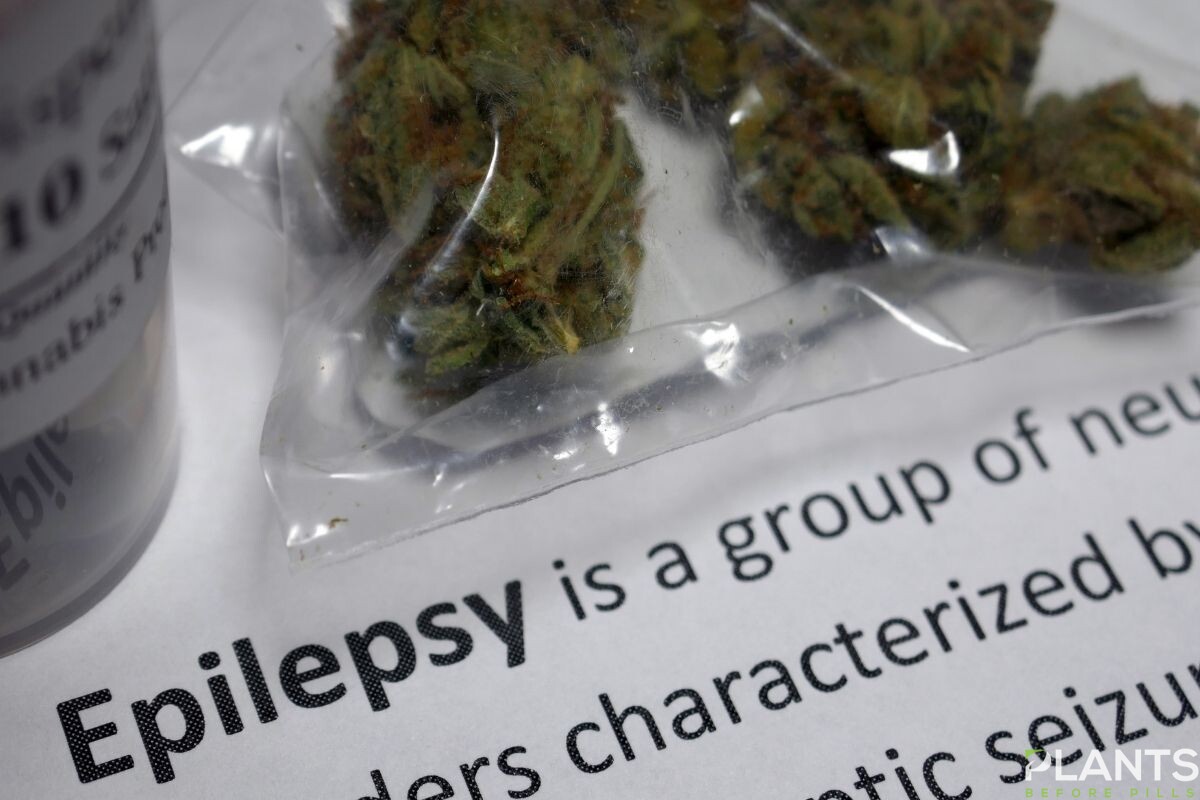
Epidiolex and Its Effectiveness
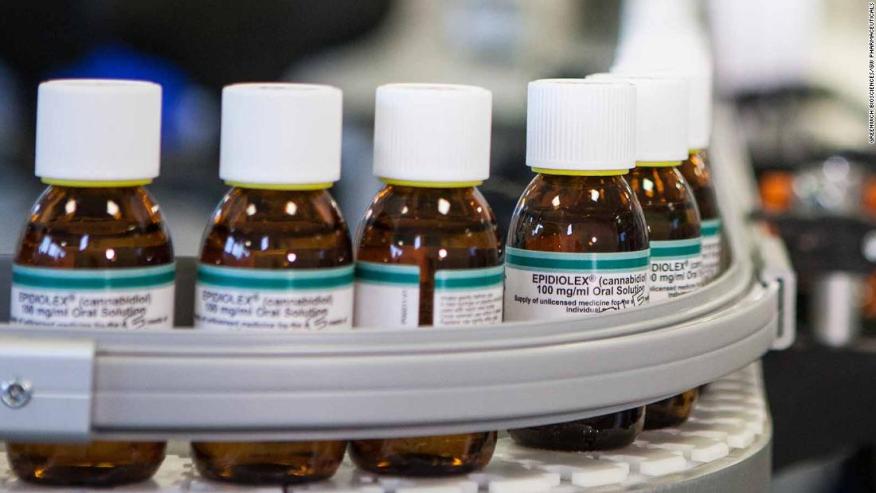
How to Use Epidiolex
As instructed by your doctor, take Epidiolex medicine twice a day by mouth. With or without meals, this drug should be taken in the same manner for each and every dose. Choosing one method and sticking to it is essential. How much medicine you take is determined by your health status and any other drugs you may be taking. If you’re taking any kind of medication, whether prescription or non-prescription, inform your doctor and pharmacist about it. Your doctor may instruct you to begin taking this medicine at a lower dosage and gradually raise your dosage in order to minimize the chance of adverse effects. Your doctor may also gradually lower your dosage if you are told to stop using this medicine. Observe your doctor’s advice to the letter. Using a specific spoon or measuring equipment, carefully measure the dosage. Avoid using a household spoon since you may not receive the right dosage.Side Effects
Sleepiness, exhaustion, difficulty falling asleep or staying asleep, a lack of energy and a decrease in appetite, weight loss, or diarrhea are all possibilities. It’s important to notify your doctor or pharmacist if any of these side effects continue or worsen. Remember that your doctor ordered this medicine because he or she believes that the benefits outweigh the risks. The majority of people who use this medicine do not have any substantial adverse effects. Signs of liver damage should be reported to your doctor as soon as possible. Anti-seizure medicines may cause depression, suicidal thoughts, or other mental/mood issues in a tiny percentage of people. The risk of a severe allergic response to this medication is quite low. However, if you detect any signs of a severe allergic response, such as a rash, itching, swelling, severe dizziness, or difficulty breathing, you should seek immediate medical attention.How Much Is Epidiolex?
The price of Epidiolex might vary, just like the price of any other drug. Epidiolex may only be available at a specialized pharmacy. Specialty drugs are permitted to be sold at this pharmacy. Patients may need assistance from a healthcare professional in order to properly and efficiently utilize these medications. Your insurance provider may demand that you obtain prior authorization before covering Epidiolex. As a result, before your insurance company will pay a prescription medication, your doctor and insurance company must talk about it. Whether or not a medicine is covered by insurance depends on the outcome of the prior authorization request. Your insurance provider can help you determine whether or not you need prior permission for Epidiolex.Conclusion
Though Epidiolex is an FDA-approved drug, there are no guaranteed similar good effects on every person. So if you ever encountered side effects that are listed above or anything that makes you feel uncomfortable after taking Epidiolex, it is recommended to consult your doctor immediately.Medical Disclaimer:
The information provided in these blog posts is intended for general informational and educational purposes only. It is not a substitute for professional medical advice, diagnosis, or treatment. Always seek the advice of your physician or other qualified healthcare provider with any questions you may have regarding a medical condition. The use of any information provided in these blog posts is solely at your own risk. The authors and the website do not recommend or endorse any specific products, treatments, or procedures mentioned. Reliance on any information in these blog posts is solely at your own discretion.
Benefits of Medical Marijuana
Cannabis as a Natural Treatment for Autism [VIDEO]
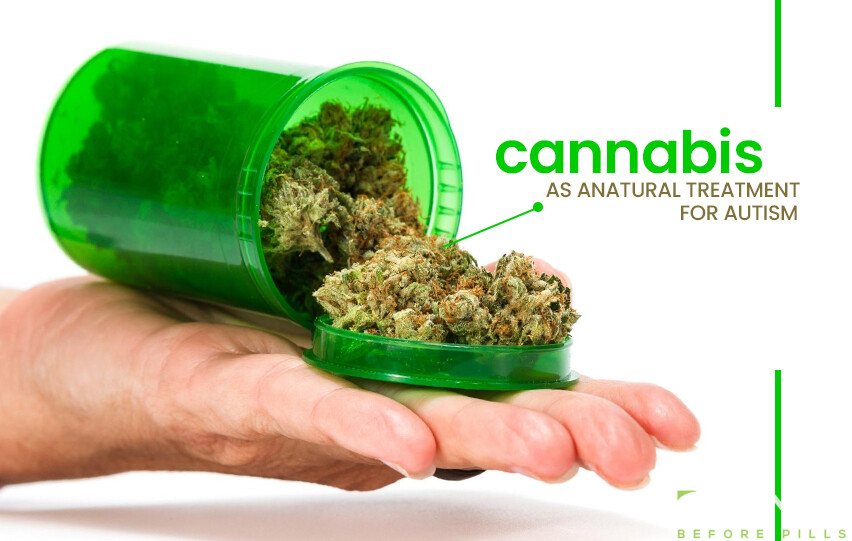
When typical medications simply aren’t doing enough to manage their children’s symptoms, mothers like Jenni Mai are turning to medical marijuana for a more natural autism treatment.
Medical Disclaimer:
The information provided in these blog posts is intended for general informational and educational purposes only. It is not a substitute for professional medical advice, diagnosis, or treatment. Always seek the advice of your physician or other qualified healthcare provider with any questions you may have regarding a medical condition. The use of any information provided in these blog posts is solely at your own risk. The authors and the website do not recommend or endorse any specific products, treatments, or procedures mentioned. Reliance on any information in these blog posts is solely at your own discretion.
Benefits of Medical Marijuana
CBD for Lung Cancer: Can it Help?

Science-Backed Findings
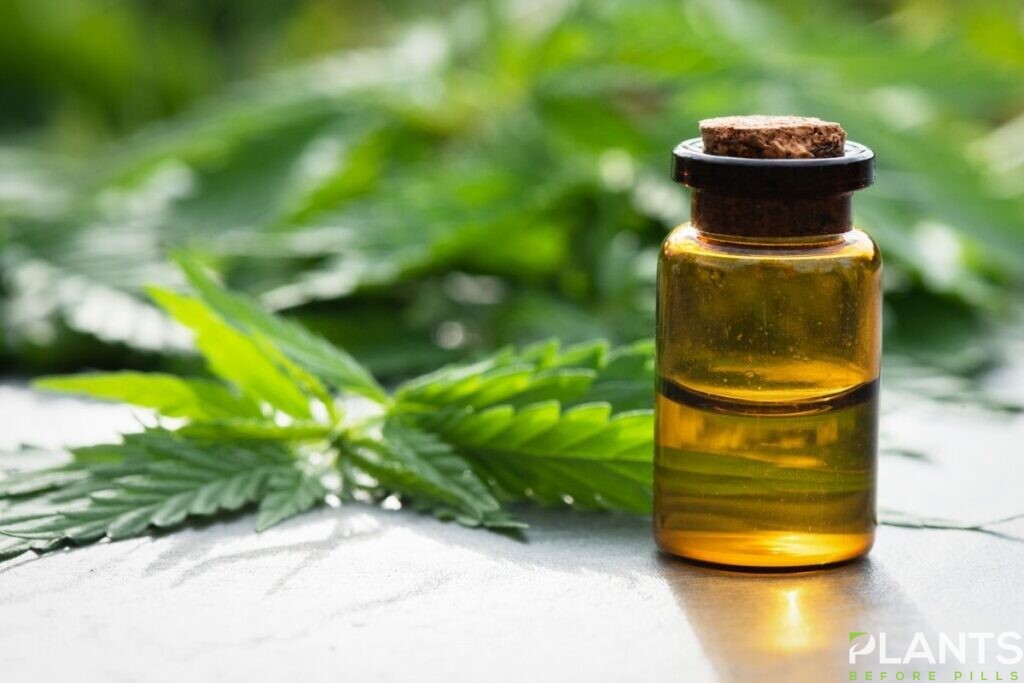
Addressing Cancer Symptoms
Chronic pain is one of the hallmark characteristics of cancer. Fortunately, cannabidiol is known to address chronic pain by interacting with parts of the brain in charge of pain and pleasure. This cannabinoid can be used for pain management thanks to its pain-relieving and anti-inflammatory properties. As for other distinct symptoms of cancer and its treatment such as vomiting, nausea, and cachexia, another cannabinoid is known to address them. The FDA has approved the use of two synthetic THC medications to treat nausea and vomiting. Moreover, cancer and its symptoms like cachexia are considered to be qualifying conditions for medical marijuana.Essential Reminder
It is important to remember that further studies are needed and approval from regulatory bodies such as the Food and Drug Administration is required. CBD should not be considered as an alternative treatment or a cure, but only as a treatment aid. To ensure the safe consumption of CBD for such conditions, make sure to consult your doctor.The Takeaway
CBD has been showing potential for treating cancer through various studies. Those who are looking into using it as a treatment aid can do so as long as they are aware of the potentials and limitations of this substance.Medical Disclaimer:
The information provided in these blog posts is intended for general informational and educational purposes only. It is not a substitute for professional medical advice, diagnosis, or treatment. Always seek the advice of your physician or other qualified healthcare provider with any questions you may have regarding a medical condition. The use of any information provided in these blog posts is solely at your own risk. The authors and the website do not recommend or endorse any specific products, treatments, or procedures mentioned. Reliance on any information in these blog posts is solely at your own discretion.
Benefits of Medical Marijuana
Where is the Best Place to Buy Medical Marijuana?
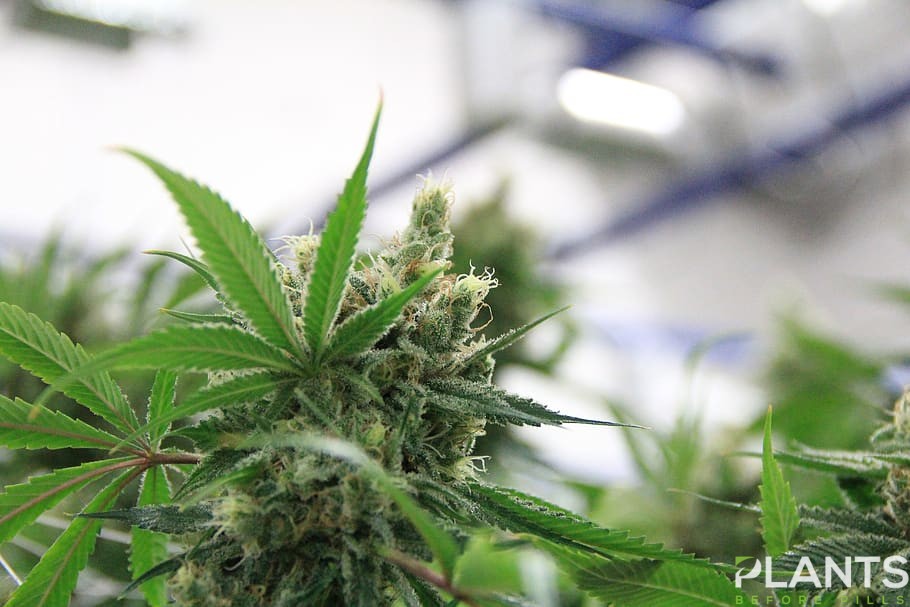
Despite many states having legislation forbidding the use of medicinal marijuana, more than two-thirds of them and the District of Columbia have legalized it, with more on the way. Although many individuals use marijuana, the FDA only authorizes it to treat Dravet syndrome and Lennox-Gastaut syndrome, two uncommon and severe types of epilepsy.
Why hasn’t there been more investigation? One explanation is that marijuana is classified as a Schedule I substance by the United States Drug Enforcement Administration (DEA) and heroin, LSD, and ecstasy. It is very likely to be misused and has no medicinal benefit. According to Marcel Bonn-Miller, Ph.D., a drug abuse expert at the University of Pennsylvania Perelman School of Medicine, researchers require specific permission to study it because of this.
The DEA contemplated reclassifying marijuana as a Schedule II substance, similar to Ritalin or oxycodone, but decided against it. That is unlikely to alter very soon. However, the government agreed to finance further marijuana studies and make the process easier for researchers. Here, we will provide some background information on the uses of medicinal marijuana and its potential adverse effects.

What exactly is medicinal marijuana?
Medical marijuana is a type of marijuana used to cure diseases or symptoms by using the marijuana plant or its other components. Although it has the same active component as recreational marijuana, its uses are solely for medical purposes.
Cannabinoids, which there are hundreds of, are a large category of chemicals found in marijuana plants. Each has its particular effect on the human body. Often in medicine (CBD), the most frequently used are the chemicals delta-9-tetrahydrocannabinol (THC) and cannabidiol (CBD). THC is also responsible for the high that people experience when they smoke marijuana or consume THC-containing foods.
What is medical marijuana used for?
There is medical marijuana research to see if it can assist with a variety of ailments, including:
- Chronic pain: a condition that affects the central nervous system.
- Nausea
- Muscular spasms, particularly those linked with diseases like multiple sclerosis
- Difficulties with sleep
Cannabis also treats the following ailments:
- Cancer
- Chronic pain
- Glaucoma
- Migraine
- Any other chronic or persistent medical condition that restricts your capacity to carry out essential life activities or that, if not treated, might cause substantial harm to you.
Cannabis is beneficial in the treatment of diseases or the symptoms of illnesses, including appetite loss. Because it makes those who consume it extremely hungry, it has shown to be particularly effective in treating various diseases. AIDS is one example of this illness.
It is not sound advice to use medical marijuana to diagnose or treat medical problems. Using it to diagnose or treat ailments will have little or zero effect on the outcomes of these illnesses. Cannabis should be in use to relieve nagging symptoms of diseases. With minimal signs accompanying a particular disease, people suffering from this disease are more likely to be happy.
Cannabis helps to relieve symptoms like:
- Chronic pain
- Glaucoma
- Migraine
- any other chronic or persistent medical symptom that limits your ability to conduct significant activities in life or can cause serious harm to you if not relieved
Because cannabis can make you hungry, it’s also helpful in treating conditions or side effects of diseases that cause a loss of appetite, such as AIDS.
Medical marijuana is for relieving symptoms, not treating or curing diseases, as using it won’t change the outcome of a specific illness. But it can ease certain symptoms, make you feel better, and improve your quality of life.
How does medical marijuana help?
The active compounds in medicinal marijuana, known as cannabinoids, are comparable to chemicals produced by the body and are involved in hunger, memory, movement, and pain.
Cannabinoids, according to limited studies, may:
- Reduce your anxiety levels
- Relieve pain and reduce inflammation
- Control cancer chemotherapy-induced nausea and vomiting
- Kill cancer cells and slow tumor development
- Relax tight muscles in people with MS
- Stimulate appetite and improve weight gain in people with cancer and AIDS
Has the FDA approved medical marijuana?

Epidiolex, a cannabinoid, was authorized in 2018 to treat seizures linked with Lennox-Gastaut syndrome and Dravet syndrome, two uncommon and severe types of epilepsy. In addition, the FDA has approved two cannabis medications produced by humans. Dronabinol (Marinol, Syndros) and nabilone are the drugs in question (Cesamet). They’re used to alleviate chemotherapy-induced nausea and vomiting. Epidiolex, a cannabinoid, was authorized in 2018 to treat seizures linked with Lennox-Gastaut syndrome and Dravet syndrome, two uncommon and severe types of epilepsy.
Where is the best Medical Marihuana Delivery Place?
Sun Valley Caregivers prides itself on selling our quality medical marijuana products and offering the best marijuana delivery services. They provide compassionate customer service, competitive prices, overall cleanliness, and safe access with plenty of easy parking. The charge is only 14.5% tax for medical customers to boost further the quality of experience they offer customers. If you are a recreational customer, the tax charge is only 19.5%.
Talk of being an authority in the field, Sun Valley Caregivers is one of the first legal cannabis in California operating since 2006. So if you are looking for the best, secure, fast, and reliable medical marijuana delivery, you should consider Sun Valley Caregivers.
Medical Disclaimer:
The information provided in these blog posts is intended for general informational and educational purposes only. It is not a substitute for professional medical advice, diagnosis, or treatment. Always seek the advice of your physician or other qualified healthcare provider with any questions you may have regarding a medical condition. The use of any information provided in these blog posts is solely at your own risk. The authors and the website do not recommend or endorse any specific products, treatments, or procedures mentioned. Reliance on any information in these blog posts is solely at your own discretion.
Benefits of Medical Marijuana
5 Ways CBD Helps Heal Acne and Rosacea [VIDEO]
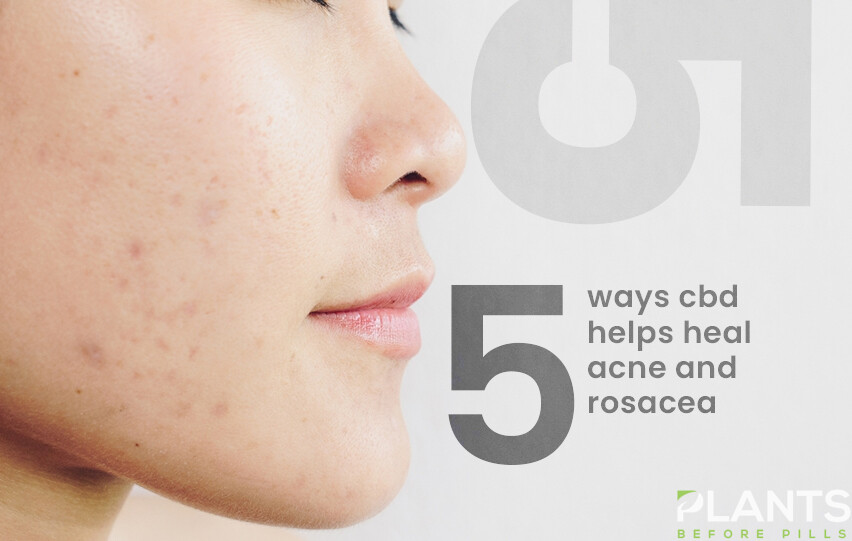
If you have already tried so many different products for acne and/or rosacea and your skin is now oversensitized, then the answer might be to use CBD. Find out more in this video.
Medical Disclaimer:
The information provided in these blog posts is intended for general informational and educational purposes only. It is not a substitute for professional medical advice, diagnosis, or treatment. Always seek the advice of your physician or other qualified healthcare provider with any questions you may have regarding a medical condition. The use of any information provided in these blog posts is solely at your own risk. The authors and the website do not recommend or endorse any specific products, treatments, or procedures mentioned. Reliance on any information in these blog posts is solely at your own discretion.
Benefits of Medical Marijuana
Does CBD Improve Mental Health? [VIDEO]
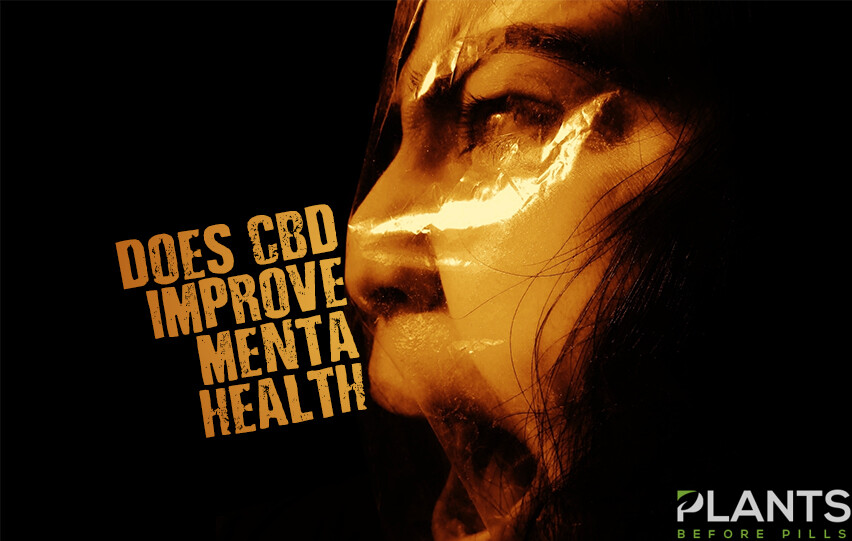
CBD is a big buzzword in health circles these days. The compound is being added into many recipes and products and used to treat a variety of issues, including mental health conditions. The question is: what does research actually say about its claims?
Medical Disclaimer:
The information provided in these blog posts is intended for general informational and educational purposes only. It is not a substitute for professional medical advice, diagnosis, or treatment. Always seek the advice of your physician or other qualified healthcare provider with any questions you may have regarding a medical condition. The use of any information provided in these blog posts is solely at your own risk. The authors and the website do not recommend or endorse any specific products, treatments, or procedures mentioned. Reliance on any information in these blog posts is solely at your own discretion.
Benefits of Medical Marijuana
Does CBD Improve Mental Health? [VIDEO]

CBD is one of the main buzzwords these days. A lot of people are using it to treat a variety of issues, including mental health. The question is – is CBD really effective when it comes to aiding mental health?
Medical Disclaimer:
The information provided in these blog posts is intended for general informational and educational purposes only. It is not a substitute for professional medical advice, diagnosis, or treatment. Always seek the advice of your physician or other qualified healthcare provider with any questions you may have regarding a medical condition. The use of any information provided in these blog posts is solely at your own risk. The authors and the website do not recommend or endorse any specific products, treatments, or procedures mentioned. Reliance on any information in these blog posts is solely at your own discretion.
Benefits of Medical Marijuana
The State of Cannabis in Washington State: Things To Know in 2021

The Pacific Northwest is well known for its beautifully lush landscapes, crisp apples, fresh air, and progressive lifestyle/health views. Being the only state named after a United States president(George Washington), Washington is a place many happily and willingly call home or their sanctuary.
In terms of other well-knowns, Washington state was one of the first to legalize cannabis for recreational use nearly a decade ago (2012 to be exact). As long as you are 21 years old or older and reside in the state, you can privately partake in the consumption of cannabis without any legal ramifications. This has been an appeal to many across the country, with some actually moving to the state for this reason.
In 2021, and with the dawn of a new administration in the White House, marijuana looks to have a very bright few years ahead. We’ve already seen an emergence of pot stocks and hometown dispensaries budding up all around the United States and the rest of North America, and that only looks to continue into the near future.
If you’re in the mood to finally take the leap into using cannabis, now could be a great time to learn more about this wonderful plant and its many healing and rejuvenating properties.
What is it used for mainly in 2021?
Cannabis was once thought only to be good for “getting high.” There has been a plethora of scientific research giving us a better understanding of this miracle plant. It has been used to treat Cancer, Epilepsy, Seizures, Glaucoma, PTSD, Multiple Sclerosis, Inflammation, and even Alzheimer’s disease. In 2021 after a rough 2020, many have been using it as a healthier way to indulge at home, protecting themselves from the ongoing pandemic. Instead of frequent alcohol consumption, there has been a larger shift towards the consumption of cannabis as it has been stated to be less harmful to vital organs like the heart and liver. Alcohol also creates a lot of inflammation within the body, whereas cannabis reportedly fights inflammation.
Best places to buy it in 2021?
The best places to purchase your cannabis are from state-licensed retailers in Washington. Purchasing weed through private means(aka black-market) is still illegal and should be avoided at all costs. Make sure to do your due diligence when seeking reputable dispensaries as there are “pop-up shops” that claim being licensed but are not, and purchasing from them could result in a hefty fine or even jail time.
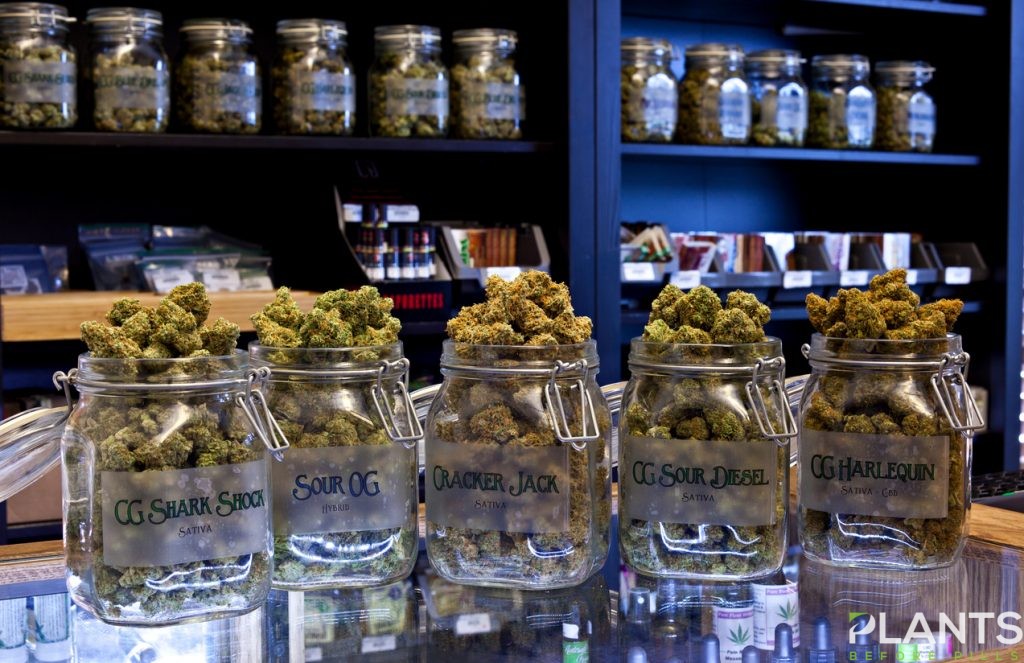
Per WeedMaps, Medical marijuana patients may purchase and possess up to:
- 3 ounces of marijuana, or 85 grams;
- 48 ounces, or 1.36 kilograms of marijuana-infused products in solid form;
- 1.69 gallons, or 6.4 liters of marijuana-infused products in liquid form, or;
- 21 grams of marijuana concentrate.
Washington state cannabis Legislation in 2021
As far as growing and cultivation of marijuana for personal use, this is still illegal. Washington cannabis laws are more liberal than other states, but there are still many restrictions, such as not being able to consume it in “public view”. The most notable push in the cannabis space in Washinton state is a bill for home cultivation.
Conclusion
Washington is a great place to visit and, for many, is one of the best places to call home due to its stance on cannabis consumption. With 2021 being a year of progression, it looks like the state of cannabis in Washington will only continue to shine.
Medical Disclaimer:
The information provided in these blog posts is intended for general informational and educational purposes only. It is not a substitute for professional medical advice, diagnosis, or treatment. Always seek the advice of your physician or other qualified healthcare provider with any questions you may have regarding a medical condition. The use of any information provided in these blog posts is solely at your own risk. The authors and the website do not recommend or endorse any specific products, treatments, or procedures mentioned. Reliance on any information in these blog posts is solely at your own discretion.
-
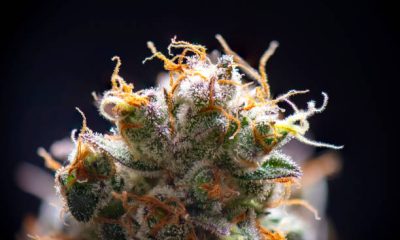
 Cannabis 1016 months ago
Cannabis 1016 months agoExploring the Powerful Profile of Sour Diesel Terpenes: Aroma, Effects, and Uses
-
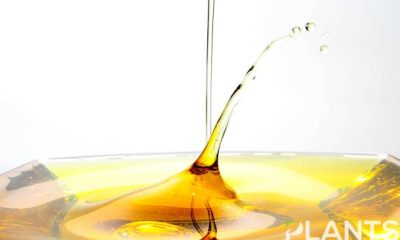
 Videos6 months ago
Videos6 months agoLive Resin Explained: A Potent Cannabis Extract Guide
-

 Cannabis 1016 months ago
Cannabis 1016 months agoWhere to Find the Best Weed Stores in Calgary Without the Headache
-
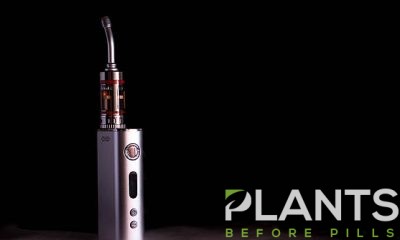
 Cannabis 1016 months ago
Cannabis 1016 months agoThe Future of vape hardware manufacturer: Innovation Quality and Compliance
-
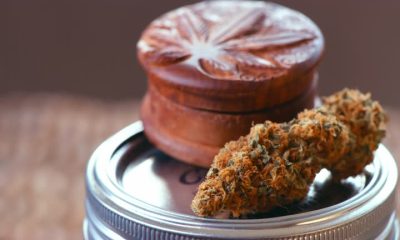
 General5 months ago
General5 months agoIntroduction to Buying Marijuana Seeds
-
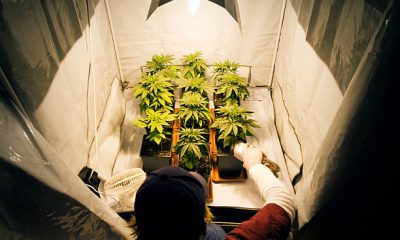
 Cannabis 1015 months ago
Cannabis 1015 months agoThe Complete Guide to Growing Marijuana Tohumsuz
-

 Cannabis Business6 months ago
Cannabis Business6 months agoBenefits of Partnering with a Cannabis POS Provider
-
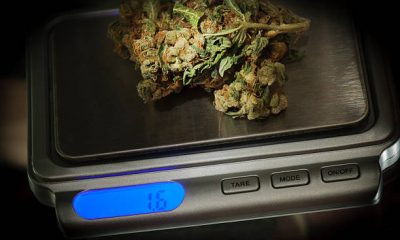
 Cannabis Blogs5 months ago
Cannabis Blogs5 months agoThe Ultimate Guide to Cultivating Cannabis in the Netherlands

